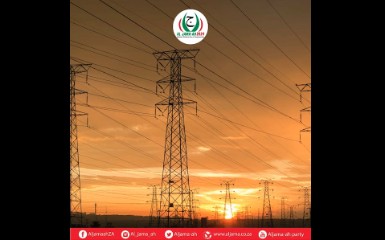
Several high-profile lawyers, leaders, and NPOs have threatened Eskom CEO Andre de Ruyter and Public Enterprises Minister Pravin Gordhan with legal action following their failure to provide a stable power supply to the country.
The letter issued to De Ruyter and Gordhan on Monday, was addressed by Mabuza Attorneys and at least six other law firms – Buthelezi Vilakazi Inc, Makangela Mtungani Inc, Mketsu & Associates Inc, Mphahlele & Masipa Inc, Madlanga & Partners Inc and Ntanga Nkuhlu Inc Attorneys.
The legal team has received the backing of United Democratic Movement leader Bantu Holomisa, Build One SA leader Mmusi Maimane, policy analyst Lukhona Mnguni, the Inkatha Freedom Party, the National Union of Metalworkers and several NPOs.
The legal team said their clients instructed them to demand that loadshedding be stopped with immediate effect and, if not, a full explanation of why the government could not stop it.
Alternatively, they also demanded a specific timetable for when loadshedding would end, and the reasons for the timetable.
They said the state should develop and make publicly available a clear plan to end loadshedding, which must include the resources available to ensure it was realised.
Lastly, the lawyers demanded the 18.65% increase granted by the National Energy Regulator of South Africa (Nersa) should not be implemented, pending the determination of the court challenge their clients intended to institute.
Eskom and Gordhan have until 20 January to respond to the letter to avoid legal action.
“If we are compelled to bring proceedings which we hope to avoid, papers shall be lodged on 23 January 2023 for urgent relief,” the lawyers stated.
“It cannot be disputed that the state, as represented by the ministry of public enterprises and Eskom, has not taken any reasonable measures to provide vulnerable South Africans with adequate and reliable energy, whether electricity or any other alternative forms of energy.
“In so doing, the state has contravened its duty to provide energy as imposed by the Constitution, national legislation, and contract.”
On Monday afternoon, Eskom announced Stage 4 loadshedding would be implemented at 05:00 to 16:00 from Tuesday, followed by Stage 5 loadshedding at 16:00 to 05:00 from Wednesday.
The embattled power utility said over the course of this week, 14 generators were expected to return to service, helping to ease the pressure on the power system.
Eskom bought an additional 50-million litres of diesel on 6 January 2023.
But the legal team said in its letter that the state had failed to manage the grid responsibly, resulting in material breaches of the constitutional rights of citizens.
“Eskom is an organ of the state. The Constitutional Court has affirmed its role to supply electricity to ensure the economic and social wellbeing of the people.
“It affirmed further that Eskom cannot unilaterally reduce the bulk electricity it supplies. This ruling does not only apply to the supply of electricity to municipalities, but equally to Eskom’s general obligation to transmit and deliver electricity to the nation as a whole.”
Since Eskom implemented Stage 6 loadshedding last Wednesday, many small businesses have buckled under its strain, courts have come to a halt, and hospitals, schools, and households have been left without stable electricity supply for eight to 12 hours a day.
According to the lawyers, some of the biggest problems caused by loadshedding and leading to the closure of SMMEs included the lack of internet or Wi-Fi, staff morale, and productivity, ATMs being out of order, loss of planning due to unplanned outages and the inability to trade.
“Small business report that loadshedding is tough on their operations and can be mitigated only by long-term solutions such as the installation of solar panels, and generators, devices which they can ill afford.”
Some SMMEs have also reported their equipment had been damaged due to power surges.
Besides its impact on businesses, traffic has also worsened since most traffic lights stopped working during loadshedding, and security concerns were raised.
“As security systems turn off when the power does, it leaves businesses vulnerable to all sorts of attacks, and has even caused businesses to get more insurance coverage,” the letter stated.
“We are instructed that the prejudice is due to only the unreliable electricity supply and the protracted power outages occasioned by the ever-increasing number of hours per day that they are left without power.”
The lawyers argued loadshedding also disrupted teaching and learning after it was reported some schools had not been built in a way that let the flow of natural light into the classroom.
Therefore, without generators, many schools and pupils were left in the dark.
The legal team argued loadshedding had significantly affected hospitals and healthcare workers. It also contributed to the backlog of some surgical procedures.
“When loadshedding happens, many public hospitals lose the ability to provide proper healthcare services. Even though many do have generators to provide backup power, it is still not a sustainable option.
“Frequent blackouts also affect medical equipment as health equipment has been upgraded and requires an uninterrupted power source, they get damaged as continuous power cuts occur.
“Consumables such as pharmaceuticals, medications, and vaccines that require cold storage are also a concern as they are unable to be kept at the appropriate temperature during loadshedding.”
The safety of healthcare workers was also compromised because those who finished late or started in the early hours of the morning were vulnerable to criminals.
Municipalities also battled rampant cable theft, with instances drastically increasing over the festive period due to loadshedding.
Meanwhile, Ramaphosa called an urgent meeting with opposition political leaders on Sunday night as part of the government’s plan to address the ongoing Eskom crisis.
At least three political leaders, who were at the meeting, told News24 that the latest proposals in the government’s most recent attempt to address the energy crisis included a plan for National Treasury to take over Eskom’s debt.
To improve the generation capacity, which appears to be the significant contributing factor to the current power shortages, Ramaphosa and Gordhan are said to have agreed that Eskom’s debt – which is over R400-billion – should be transferred to the National Treasury.
“There was consensus that the debt is moved to Treasury because whenever there is a cashflow problem at Eskom planned maintenance is the one that suffers,” Al Jama-Ah’s leader, Ganief Hendricks, told News24
He added that while Ramaphosa said it would benefit the country if Treasury took over the debt, Finance Minister Enoch Godongwana would make the final decision.
Hendricks said Gordhan had also proposed that each province have its own grid instead of the entire country relying on only one.
“[H]e came up with a proposal that there must be mini-grids … so that if one collapses like now, there are another eight that are working,” Hendricks said.
The plan was to get about 2 000 municipalities across the country to be grouped into regions and placed in charge over different grids.
Speaking to News24, energy economist Lungile Mashele said the proposal to have nine grids was feasible since numerous countries run on multiple grids.
She was, however, quick to add that the improvement of transmission capabilities was not going to help as the country still struggled with generation capacity.
“You can see many grids, but if there is nothing that will come to that grid, this will not help,” said Mashele.
Another shortcoming of the proposal, according to Mashele, was that it could create a situation where those who can generate electricity may transmit it through a possibly privatised grid, and this could lead to uneven power outages among provinces.
Another proposal was that Eskom be awarded a wholesale licence to purchase diesel, two political leaders who preferred to remain anonymous told News24.
They said Gordhan called for closer monitoring of how the power utility buys diesel, and added that the country could not afford to pay more than the retail diesel prices.
In December, the power utility said it had spent R11-billion on diesel in just 10 months and asked for another R20-billion for more diesel.
View original article courtesy of Engineering News | 17 January | Author: News24Wire

Political party Al Jama-Ah says it will introduce a private members’ bill to parliament in the coming months to recognise the validity of Muslim marriages in South Africa.
The party gazetted its intent to table the bill in the National Gazette on Friday (4 November 2022).
Party founder and leader Mogamad Ganief Hendricks first put the bill forward in October 2021, under the title of Interim Registration of Muslim Marriages Bill, 2021, but will now resubmit it under the title of Registration of Muslim Marriages Bill, 2022.
Broadly, the bill aims to provide for the following:
- The recognition of a Muslim marriage as a valid and binding contract of marriage;
- The requirements of a valid Muslim marriage, including solemnisation thereof;
- The registration of Muslim marriages as valid marriages for all purposes in the Republic of South Africa;
- The proprietary consequences of a Muslim marriage;
- Equal status and legal capacity of spouses in a Muslim marriage;
- Acknowledging the application of other existing domestic legislation to Muslim marriages in specified circumstances.
Despite South Africa’s constitutional protections for different religions and cultural practices, standing marriage regulations have glaring holes in them when dealing with marriages for persons of different genders, sexual orientations and both polygamous and non-polygamous cultural backgrounds.
For Muslim marriages, in particular, this has been a sticking point for over a decade. The Muslim Marriages Bill was introduced in 2010 to rectify inequalities in marriage law in South Africa, but the bill was never passed into law.
Since then, the Constitutional Court cases has confirmed that both the Marriage Act of 1961 and the Divorce Act of 1979 are inconsistent with the constitution because they fail to recognise marriages solemnised in accordance with Sharia law and have not registered these as valid civil marriages.
This failure in law leaves many Muslim partners vulnerable in their marriages and divorce proceedings.
A court case in June 2022 found that sections of South Africa’s standing divorce laws were unconstitutional because they failed to provide mechanisms to safeguard the welfare of minors in Muslim marriages. They also fail to make provisions for the forfeiture of assets in the same or similar terms as other marriages.
The Constitutional Court suspended the declaration of invalidity for 24 months, giving the government until June 2024 to rectify the country’s laws.
While interim measures have been put in place – the hole in South Africa’s marriage laws remains.
Solution
In its 2022 annual performance plan published earlier this year, the Department of Home Affairs announced plans to draft and submit new marriage laws to cabinet.
The department said that current marriage laws in the country were developed without an overarching policy rooted in constitutional values, and said they needed to be updated to take into account modern social dynamics.
Instead of trying to deal with disparate marriage laws and passing a wide range of bills, the department wants to bring all marriage regulations under a single banner.
Currently, South African marriages are regulated through three different pieces of legislation, namely: .
- The Marriage Act – which provides for monogamous marriage for opposite-sex couples;
- The Recognition of Customary Marriages – which provides for polygamous marriages for opposite-sex couples;
- The Civil Union Act – which provides for monogamous partnerships for both same and opposite-sex couples.
- Under a new ‘single marriage bill’, the department aims to bring these regulations together while also aligning opposite-sex marriages, customary marriages, same-sex marriages, and other cultural unions under the same laws.
The department has explored these and many other proposals in a green paper on marriages published in 2021.
Some of the proposals include:
- The legal framework that will regulate monogamous marriages will include all marriages irrespective of race, religion, culture, sex, gender, nationality, etc.
- The legal framework that will regulate polygamous marriages will include all polygamous marriages irrespective of race, religion, culture, nationality, etc
- Marriage legislation must enable the recognition of customary marriages that are practiced in some African communities, including royal families
- Possible provision for various kinds of polygamous marriages, including polyandry
- The legal framework will enable the realisation of equality, non-discrimination and human dignity principles in the solemnisation and registration of all marriages.
- Making it so that no person under the age of 18 years will be permitted to marry.
- Transitional mechanisms for persons who undergo sex alteration.
- The green paper recommended either the adoption of a Single Marriages Act, an umbrella Marriages Act, or parallel Marriage Acts to resolve the constitutional issues in standing law.
Read the full article that appeared in Business Tech, 4 November 2022 here:
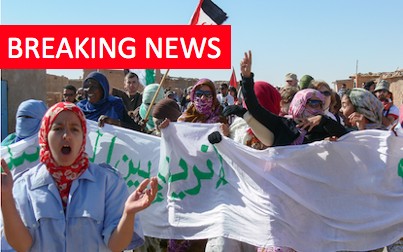
GANIEF HENDRICKS, leader of Al Jama-ah and a member of parliament, calls on the South African government and international community to intensify action over self-determination for the Sahrawi Arab Democratic Republic (Western Sahara).
The people of Western Sahara deserve to have their voices heard.
Allowing and opening up democratic processes is the only way in which the will of the people can be determined in an area along Africa’s Atlantic coast that has a population of about 600 000 people, according to UN estimates.
The term of office of the Referendum Committee that was established by the United Nations is expiring at the end of October 2022. Al Jama-ah is concerned that the end of term could lead to the end of the ceasefire and the beginning of an armed struggle.
The recent visit to South Africa by Western Sahara’s president, Brahim Ghali, is very important as Western Sahara needs a two-thirds majority to extend the term of office of the referendum agreement.
Just as with the South African’s fight against apartheid, the people of Western Sahara have the power to end the unscrupulous occupation of a vast stretch of phosphate-rich desert that is controlled by Morocco. This occupation needs to be challenged.
The international community has long backed a referendum to be held to decide Western Sahara’s status but Morocco continues to reject any vote in which independence is an option. It wants to continue to defend its interests and use all the means at its disposal.
Now is the time for action and the end of the silence that persists in the world about the struggle for self-determination for the people of Western Sahara. Our volume against this oppression needs to increase and the messaging needs to be clearer. We need to be firm and unapologetic about our support for the Sahrawi people. Let the people’s voices be heard.
We not only support the call but are prepared to march in demonstration against this unjust occupation. Western Sahara needs backing and support to end this bullying that has been going on for years.
We would like to urge our president, Cyril Ramaphosa, to keep the promises made to President Ghali.
Just as in South Africa’s fight for liberation, lives have been lost and we need to silence the guns that have long caused havoc on our continent. We need to end this occupation of an African country by another African country. We cannot allow a situation where two African countries are at war with one another. This goes against the African Union’s vision for the United States of Africa.
Ganief Hendricks is Al Jama-ah party leader and a member of parliament.
Original article published in Muslim views: https://muslimviews.co.za/2022/10/26/africa-is-not-yet-free-until-western-sahara-is-free/#
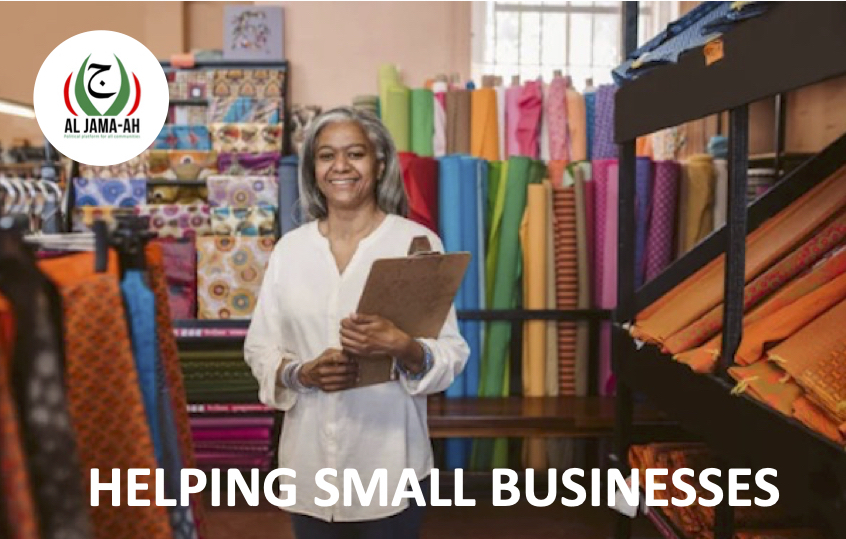

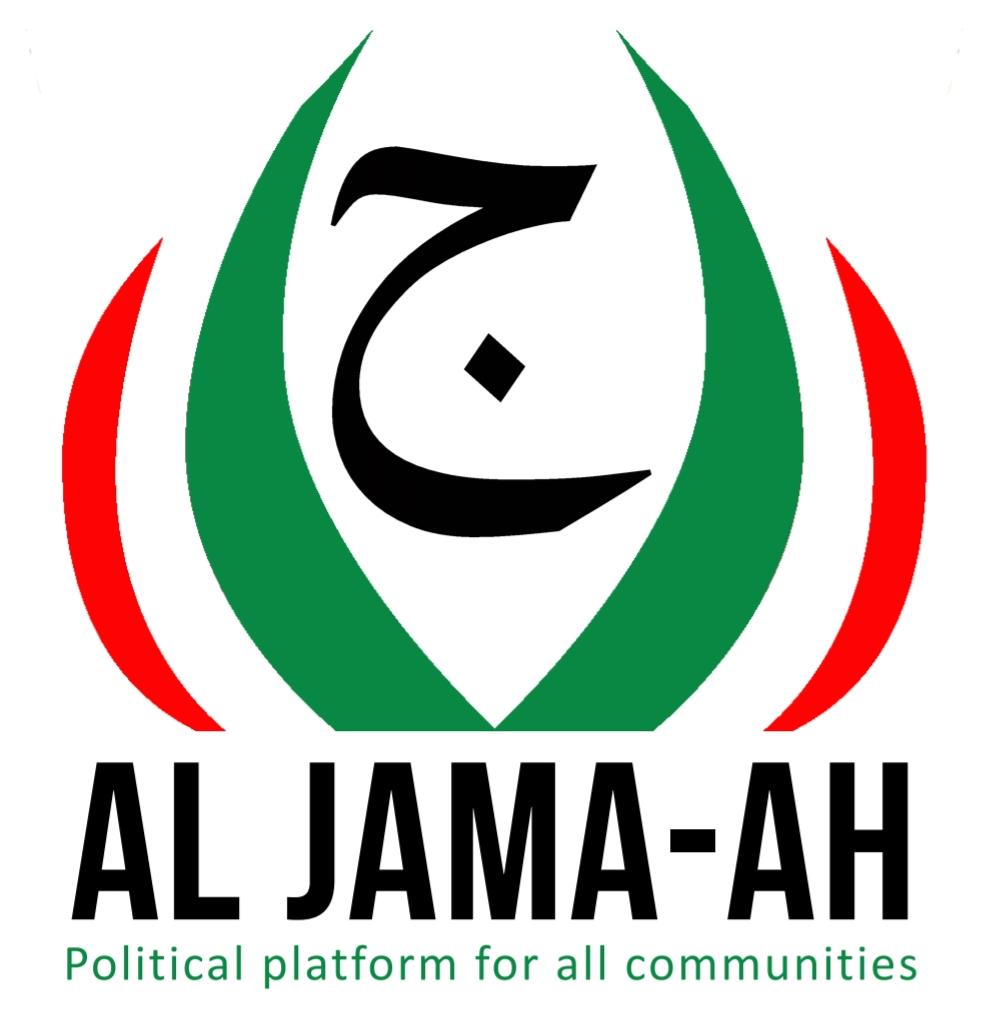

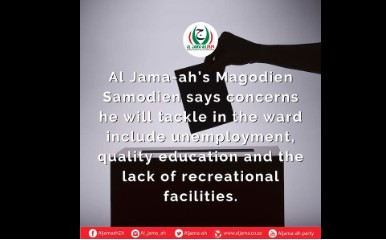

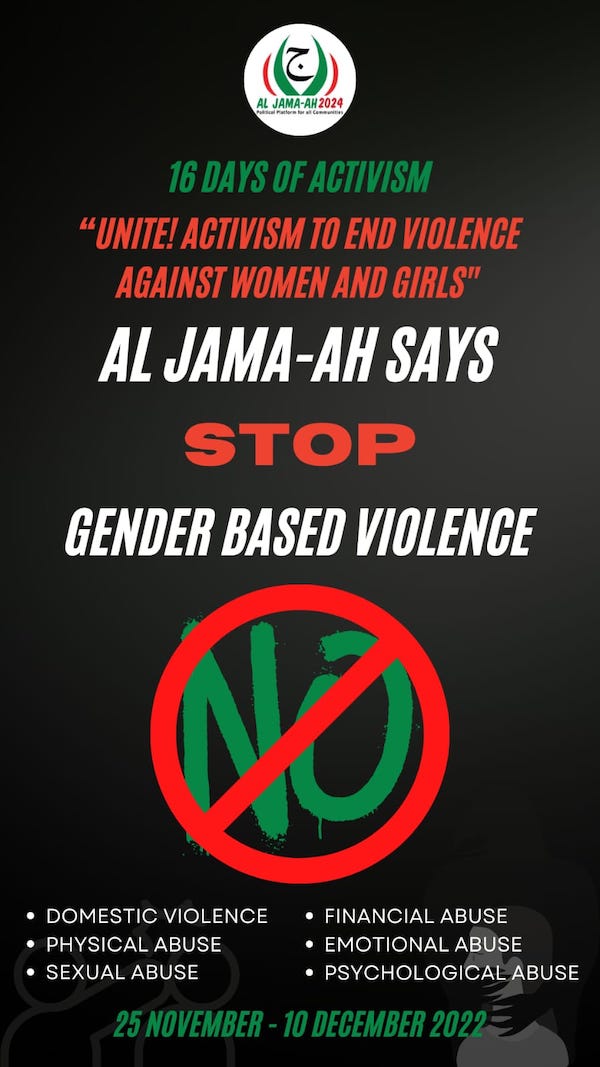 Despite their poor conditions there are women of conscience who strive to uplift themselves and their families out of poverty; there are women who
Despite their poor conditions there are women of conscience who strive to uplift themselves and their families out of poverty; there are women who 
